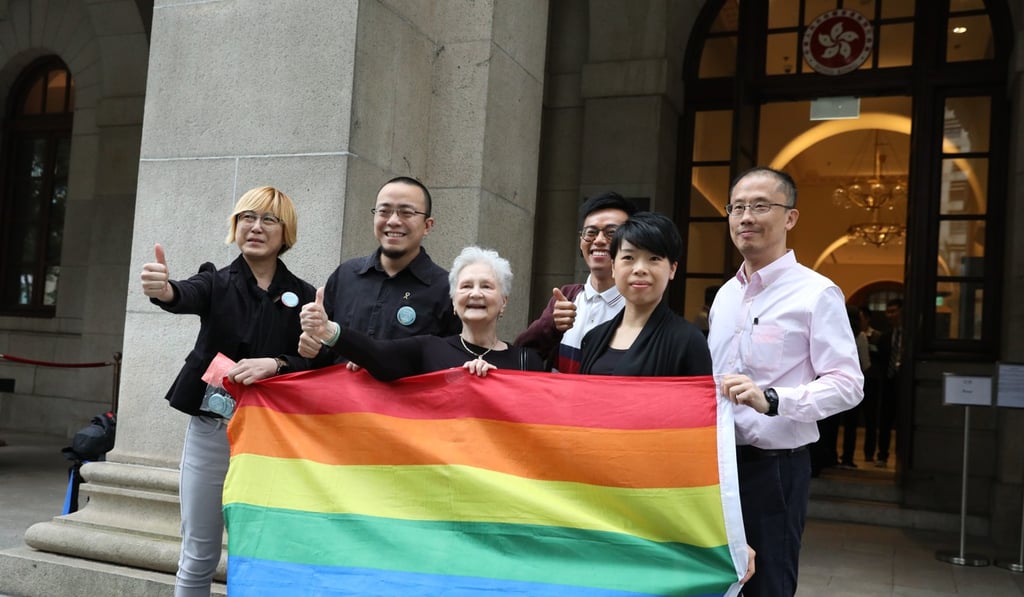Government can’t justify discriminatory treatment, lawyer for gay Hong Kong civil servant argues in final appeal over spousal rights
- Counsel for senior immigration officer Angus Leung says authorities have failed to explain link between protection of marriage and granting rights to client

The legal battle for a gay immigration officer in Hong Kong over spousal benefits entered its final chapter on Tuesday as his lawyer argued in an ultimate appeal that the government could not justify its discriminatory treatment.
Addressing top judges at the Court of Final Appeal, barrister Karon Monaghan QC, for Angus Leung Chun-kwong, attacked the heads of the Civil Service Bureau and Inland Revenue Department for merely running in circles in their reasoning for refusing to grant Leung his rights.
“It has to be justified. It’s not enough to say marriage is special and unique,” she said.
Mr Justice Roberto Ribeiro, one of the presiding judges, also expressed difficulties in grasping the authorities’ assertion.
“Why are you saying that it was undermining the tradition of marriage...because a gay person is now allowed to see a dentist,” he asked Lord David Pannick QC, who represented the government.
